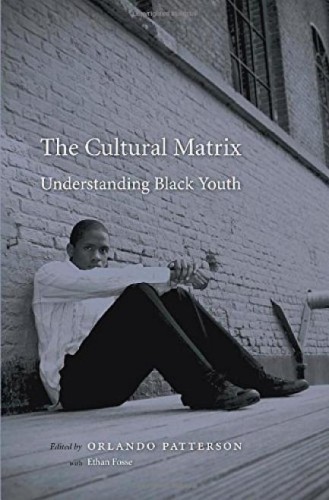Can Reforming Culture Save Black Youths?
Share
Explore Our Galleries
Breaking News!
Today's news and culture by Black and other reporters in the Black and mainstream media.
Ways to Support ABHM?
By Greg Thomas, theRoot
In a new book, Harvard sociology professor Orlando Patterson explores the way in which culture can be used to understand and improve the lives of young African Americans.
Jamaican-born Orlando Patterson, a Harvard sociology professor since 1969, likes to tackle big issues. In the newly released The Cultural Matrix: Understanding Black Youth, Patterson and more than 20 other scholars focus on the contemporary state of young black people in the United States.
Considering recent tragedies and protests involving black youths, the police and the legal system—along with the centuries of devastation wrought by racial bias—a work exploring the impact of culture is both timely and welcome. Though we are far from achieving a post-racial society, what Ralph Ellison called conscious culture can point a way.
Patterson and his fellow contributors wrestle with hip-hop culture; the values of disconnected youths; continuity and change in neighborhood cultures; street violence and relations with city police; gender relations and class distinctions; barriers to entry in the workforce; religious and social organizations; and family programs. Patterson and his peers present a balanced, rigorous interpretation of culture, with ample empirical evidence, and include the actual voices and viewpoints of black youths.
Patterson dismisses the culture-of-poverty thesis as inaccurate and incomplete and makes a case that the retreat from cultural analysis by his fellow sociologists has been too extreme.Patterson offers sociology a way to re-enter a policy discourse with the lives of disconnected youths at the center.
Read the full article here.
Read more Breaking News here.










Comments Are Welcome
Note: We moderate submissions in order to create a space for meaningful dialogue, a space where museum visitors – adults and youth –– can exchange informed, thoughtful, and relevant comments that add value to our exhibits.
Racial slurs, personal attacks, obscenity, profanity, and SHOUTING do not meet the above standard. Such comments are posted in the exhibit Hateful Speech. Commercial promotions, impersonations, and incoherent comments likewise fail to meet our goals, so will not be posted. Submissions longer than 120 words will be shortened.
See our full Comments Policy here.